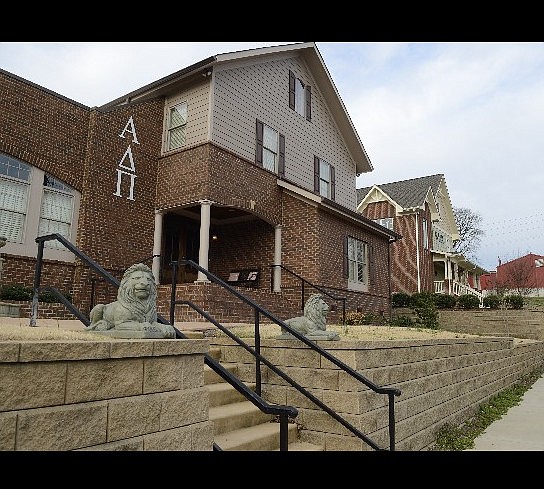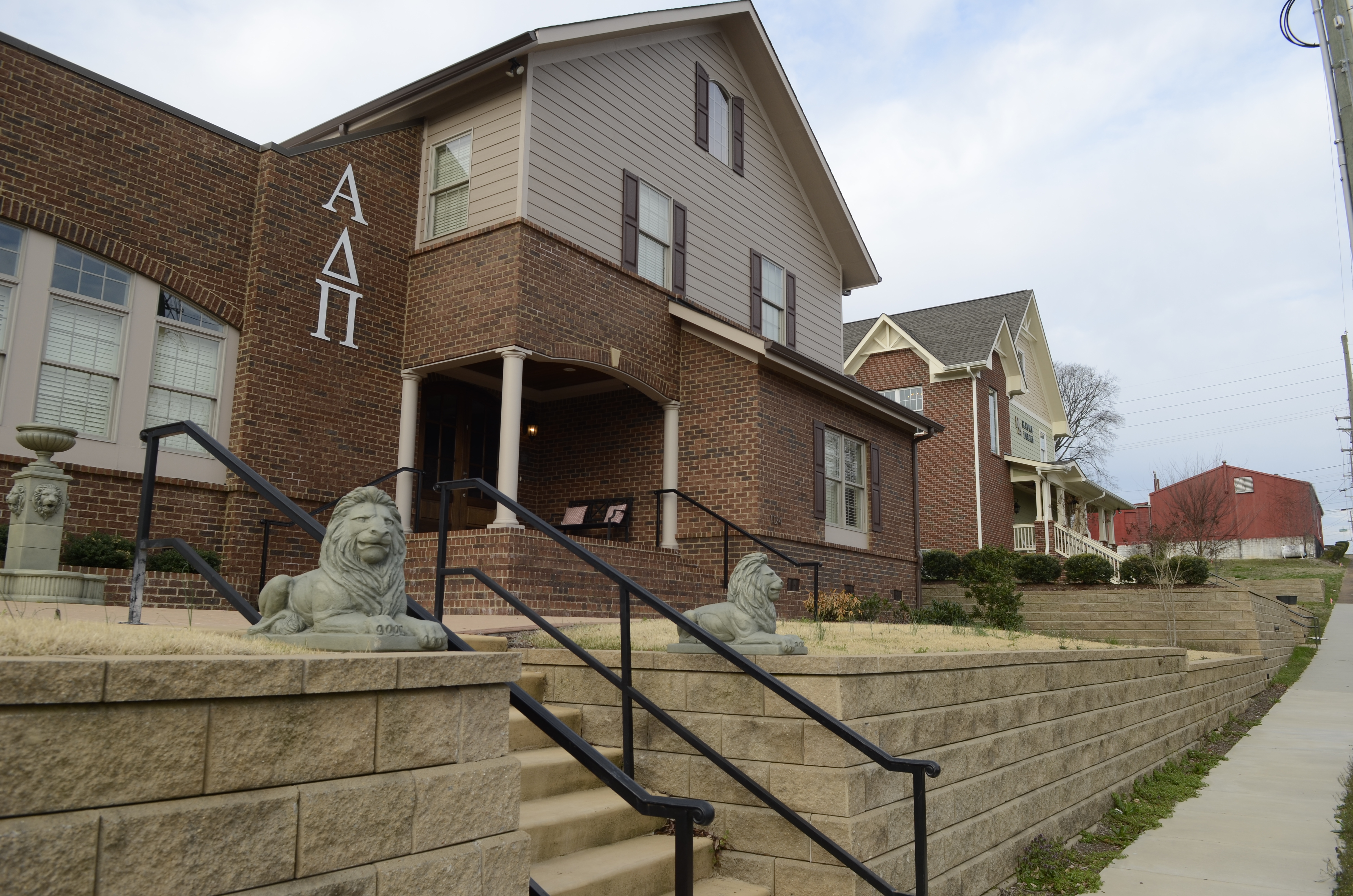AT A GLANCEGreek organizations with houses at the off-campus development at 11th Street and Central Avenue:Pi Kappa Alpha fraternityKappa Delta sororityAlpha Delta Pi sororityDelta Zeta sorority (construction begins in June)Sigma Kappa sorority (plans to purchase the plot soon)
In the midst of fulfilling their goals of building community and benefiting charities, Greek organizations on college campuses often find themselves publicized for unflattering reasons involving unruly and occasionally illegal or even deadly behavior.
To the north, three prominent UT-Knoxville fraternities have been removed from campus since 2011 for disciplinary reasons and a recent Bloomberg study found there were more than 60 fraternity-related deaths nationwide between 2005 and 2013.
But national controversy and neighboring strife have not hindered the growth of the fraternities and sororities at UT-Chattanooga.
This year, a new 100-plus member sorority has emerged to contribute to a thriving Greek culture at UTC, and more fraternities are on their way.
From the fall of 2010 to the fall of 2013, participation in fraternities and sororities grew 36 percent at UTC. The increase, though, is due to more than just student recruiting, an increase in administrative resources and climbing enrollment.
Roy Williams, a 69-year-old UTC alum and member of Pi Kappa Alpha, deserves his share of the credit, too.
A growing off-campus village on land Williams purchased in 2008 now consists of a fraternity house and two sorority houses near the intersection of Central Avenue and 11th Street. Plans for two more houses are in the works for the development that is helping plant UTC's Greek system firmly on the map after years of being scattered around areas near campus without a place to cultivate a physical community.
The opinion of Williams and others who tout the benefits of Greek life is that the frequent bad publicity comes for behavior that non-Greek college students engage in as well but for which they simply don't receive widespread attention. And they feel the lifelong friends, business connections and pride of participating in the rituals of a specific fraternity or sorority outweigh any negatives.
Dealing with what he perceived as relative indifference from the university and increasing apprehension from neighborhood associations toward Greek housing, Williams says he's accomplished what he set out to do.
"I just wanted to help my fraternity and the whole Greek system, because my theory is that if they don't work together and try and have a relationship where they're together as a group, one by one they'll lose effectiveness and it won't exist," Williams said.
The five organizations that will comprise the final makeup of the village account for 715 of the 1,381 students involved in the 17 Greek chapters recognized by the school in the fall of 2013.
Each house holds only about a dozen of a chapter's members, but the central location of several chapter headquarters will be a new twist on an aspect of UTC student life that has become a focus for the university only in recent years.
In 2010 -- the same year Pi Kappa Alpha moved into the first house on the property Williams purchased -- just 987 students were involved in fraternities or sororities, 394 fewer than in the fall of 2013.
UTC Associate Vice Chancellor of Student Development DeeDee Anderson said the growth here has accompanied a larger devotion of resources by the university within the past five years. Anderson said when she came to UTC eight years ago, one person was tasked specifically with overseeing the fraternities and sororities while juggling other responsibilities.
But staff positions have since been added to more thoroughly control the vibrant but potentially volatile aspect of student life, and student leaders say they've been encouraged to recruit and grow the system.
"They're really wanting to expand it," said UTC Interfraternity Council President Adam Sawyer, a junior member of Phi Delta Theta. "They've kind of let the students this time around lead the charge on expanding around UTC."
Convincing Fort Wood residents and the M.L. King neighborhood association of the merits of Greek life did not go as smoothly.
"They [Greeks] had been turned down many times trying to relocate in that neighborhood," Williams said. "Just with the political position of the neighborhood, they were able to keep them out. I don't think it was a fair vote many times, they just had the clout to make the vote be negative toward fraternities and sororities moving in their neighborhood."
Williams said the land he acquired was the last reasonable option for a Greek housing development close to campus. Though a few other old homes remain in the cul-de-sac where he acquired the plots, the houses are almost entirely separated from the MLK neighborhood by Central Avenue.
"Mr. Williams was able to provide some choices for our students and I think it's worked out well for them," Anderson said. "It's good to have several together. It provides a different kind of atmosphere and they aren't right in the middle of Fort Wood where there is a conflict with families and student organizations. I think it's worked out well for them."
Contact staff writer David Cobb at dcobb@timesfreepress.com or 423-757-6731.


